The annual percentage change for average UK house prices was 6.3% in the 12 months to January 2023, compared with 9.3% in the 12 months to December 2022 and 10.2% in the 12 months to November 2022.
The average UK house price was £290,000 in January 2023, which is £17,000 higher than 12 months ago.
Average house prices increased over the 12 months to £310,000 (6.9%) in England, to £217,000 in Wales (5.8%), to £185,000 in Scotland (1.0%) and to £175,000 in Northern Ireland (10.2%).
On a non-seasonally adjusted basis, average UK house prices decreased by 1.1% between December 2022 and January 2023, while average UK house prices increased by 1.7% during the same period 12 months ago. This caused the UK annual inflation rate to slow this month.
Annual house price inflation was highest in the North East where prices increased by 10.0% in the 12 months to January 2023.
The lowest annual inflation was in Scotland, where prices increased by 1.0% in the 12 months to January 2023.
London was the English region with the lowest annual growth, where prices increased by 3.2% in the 12 months to January 2023.
However, Scotland saw lower annual inflation than London, with prices increasing by 1.0% in the 12 months to January 2023.
Scotland annual house price inflation slowed this month because average prices decreased by 0.5% between December 2022 and January 2023, while average Scotland house prices increased by 3.4% during the same period 12 months ago.
The Royal Institution of Chartered Surveyors’ (RICS’) January 2023 UK Residential Market Survey reported a muted market backdrop at present, with new buyer demand, sales, fresh listings and prices all reported to be on a downward trend.
Near-term expectations suggest this picture is likely to remain in place for a while longer as the market adjusts to the higher interest rate environment.
The Bank of England’s Agents summary of business conditions 2022 Q4 reported the supply of homes for sale increased faster than demand with higher borrowing costs and concerns about affordability weighing significantly on demand from first-time buyers.
The UK Property Transactions Statistics showed that in January 2023, on a seasonally adjusted basis, the estimated number of transactions of residential properties with a value of £40,000 or greater was 96,650.
This is 10.6% lower than 12 months ago (January 2022). Between December 2022 and January 2023, UK transactions decreased by 2.6% on a seasonally adjusted basis.
In England, the January data shows that, on average, house prices have fallen 1.2% since December 2022. The annual price rise of 6.9% takes the average property value to £310,159.
The regional data for England indicates that:
- the North East experienced the greatest annual price rise, up by 10.0%
- the North East experienced the greatest monthly growth, with an increase of 0.6%
- London saw the lowest annual price growth, with an increase of 3.2%
- Yorkshire and The Humber saw the most significant monthly price fall, with a movement of –2.5%
Price change by region for England
| Region | Average price January 2023 | Annual change % since January 2022 | Monthly change % since December 2022 |
|---|---|---|---|
| East Midlands | £251,177 | 8.6 | -1.7 |
| East of England | £358,114 | 6.8 | -1.1 |
| London | £533,986 | 3.2 | -1.0 |
| North East | £163,371 | 10 | 0.6 |
| North West | £214,431 | 7.2 | -2.4 |
| South East | £398,368 | 6.3 | -1.2 |
| South West | £329,691 | 7.1 | -0.4 |
| West Midlands | £256,694 | 9.9 | 0.2 |
| Yorkshire and the Humber | £207,635 | 6.5 | -2.5 |
Repossession sales by volume for England
The lowest number of repossession sales in November 2022 was in the East of England.
The highest number of repossession sales in November 2022 was in the North West.
| Repossession sales | November 2022 |
|---|---|
| East Midlands | 4 |
| East of England | 1 |
| London | 8 |
| North East | 7 |
| North West | 26 |
| South East | 10 |
| South West | 5 |
| West Midlands | 10 |
| Yorkshire and the Humber | 5 |
| England | 76 |
Average price by property type for England
| Property type | January 2023 | January 2022 | Difference % |
|---|---|---|---|
| Detached | £489,112 | £456,138 | 7.2 |
| Semi-detached | £299,047 | £277,134 | 7.9 |
| Terraced | £253,547 | £235,755 | 7.5 |
| Flat/maisonette | £250,328 | £241,647 | 3.6 |
| All | £310,159 | £290,016 | 6.9 |
Funding and buyer status for England
| Transaction type | Average price January 2023 | Annual price change % since January 2022 | Monthly price change % since December 2022 |
|---|---|---|---|
| Cash | £290,331 | 6.7 | -1.0 |
| Mortgage | £320,027 | 7.0 | -1.2 |
| First-time buyer | £257,146 | 6.9 | -1.6 |
| Former owner occupier | £356,042 | 7.0 | -0.9 |
Building status for England
| Building status | Average price November 2022 | Annual price change % since November 2021 | Monthly price change % since October 2022 |
|---|---|---|---|
| New build | £445,990 | 24.1 | 7.6 |
| Existing resold property | £307,024 | 10.0 | 0.2 |
London
London shows, on average, house prices have fallen 1.0% since December 2022.
An annual price rise of 3.2% takes the average property value to £533,986.
Average price by property type for London
| Property type | January 2023 | January 2022 | Difference % |
|---|---|---|---|
| Detached | £1,094,132 | £1,044,080 | 4.8 |
| Semi-detached | £699,758 | £663,809 | 5.4 |
| Terraced | £589,355 | £561,146 | 5.0 |
| Flat/maisonette | £438,596 | £434,068 | 1.0 |
| All | £533,986 | £517,229 | 3.2 |
Funding and buyer status for London
| Transaction type | Average price January 2023 | Annual price change % since January 2022 | Monthly price change % since December 2022 |
|---|---|---|---|
| Cash | £547,903 | 1.6 | -0.9 |
| Mortgage | £528,619 | 3.6 | -1.0 |
| First-time buyer | £459,631 | 2.9 | -1.3 |
| Former owner occupier | £615,569 | 3.6 | -0.7 |
Building status for London
| Building status | Average price November 2022 | Annual price change % since November 2021 | Monthly price change % since October 2022 |
|---|---|---|---|
| New build | £612,084 | 18.1 | 6.9 |
| Existing resold property | £536,790 | 5.1 | 0.0 |
Wales
Wales shows, on average, house prices have fallen by 2.3% since December 2022.
An annual price rise of 5.8% takes the average property value to £216,871.
There were 5 repossession sales for Wales in November 2022.
Average price by property type for Wales
| Property type | January 2023 | January 2022 | Difference % |
|---|---|---|---|
| Detached | £332,208 | £315,842 | 5.2 |
| Semi-detached | £211,471 | £198,890 | 6.3 |
| Terraced | £168,941 | £158,760 | 6.4 |
| Flat/maisonette | £135,249 | £130,642 | 3.5 |
| All | £216,871 | £204,946 | 5.8 |
Funding and buyer status for Wales
| Transaction type | Average price January 2023 | Annual price change % since January 2022 | Monthly price change % since December 2022 |
|---|---|---|---|
| Cash | £209,534 | 5.3 | -2.4 |
| Mortgage | £221,122 | 6.1 | -2.3 |
| First-time buyer | £186,725 | 6.0 | -2.5 |
| Former owner occupier | £252,342 | 5.6 | -2.1 |
Building status for Wales
| Building status | Average price November 2022 | Annual price change % since November 2021 | Monthly price change % since October 2022 |
|---|---|---|---|
| New build | £342,545 | 26.3 | 6.9 |
| Existing resold property | £216,213 | 11.0 | -0.7 |
Commenting on New-build house prices, CEO of Alliance Fund, Iain Crawford, said:
“It’s certainly a tale of two markets at present, with uncertainty shrouding the existing market and driving a topline month on month house price decline, while the new-build market continues to move at a rate of knots.
The average price of a new-build property increased by 6.7% in January alone, up 22.3% annually and this demonstrates the continued strength of the new homes sector when compared to the wider market.
This bodes well for the year ahead and will provide many housebuilders with the confidence to bring current stock to market, while also pushing forward with their plans for the year ahead, delivering the new housing stock that the nation desperately needs.”
Commenting on First-time Buyers, Co-founder and CEO of Wayhome, Nigel Purves, said:
“The average price paid for a first home has fallen at a sharper rate than the wider market, while the annual rate of growth also remains lower, and this will be welcome news for the nation’s first-time buyers who face the toughest task when climbing the ladder.
However, the average price of a first home remains 6.1% higher than it was just a year ago, which demonstrates the growing pressure being placed on the nation’s first-time buyers when it comes to the cost of homeownership.
Unfortunately it doesn’t appear as though they will be offered a helping hand anytime soon, with the government choosing to ignore first-time buyers in last week’s spring statement.
With the final Help to Buy deadline also expiring this month, they are left with no other choice but to go it alone and we expect this task will become all the greater with another increase in interest rates on the cards tomorrow.”
Jeremy Leaf, north London estate agent and a former RICS residential chairman, comments:
“A slowdown seemed inevitable after house prices rose so far and so fast, but was accelerated by last September’s mini-Budget.
The impact of this is still to fully play out.
Although reflecting what was happening a few months ago, this most comprehensive of all property market surveys broadly confirms what we’ve been seeing in our offices recently.
The reasons for moving haven’t disappeared as buyers are slowly returning encouraged by falling mortgage rates.
Although viewings are up, sales conversions are harder due to more choice and increased buyer caution.”
Tomer Aboody, director of property lender MT Finance, comments:
“Annual house price growth is slowing, demonstrating less positivity in the market due to higher rates and affordability concerns created by the cost of living.
We expect this slowdown to continue until rates stabilise.
The market may benefit from further stimulation, perhaps in the form of the reworking of stamp duty.
Banks remain keen to lend and many buyers still want to make a move, so such an impetus may persuade them to take the plunge.
With the biggest increases in house prices rather than flats, this further cements the priorities for buyers, with space being key.”
Commenting on Increasing Mortgage Costs, CEO of Octane Capital, Jonathan Samuels, said:
“With the cost of borrowing continuing to increase, it’s no surprise that the purchasing power of the nation’s homebuyers has taken a hit and this has resulted in a string of small but consistent monthly house price reductions since last September’s mini budget.
The general consensus is that we will see yet another base rate increase tomorrow, albeit a potentially smaller jump than previous hikes, and so the cost of climbing the property ladder looks set to get that little bit more expensive.
However, the topline is that the housing market is yet to buckle under the pressure of the wider economic landscape and while buyers are acting in a more reserved manner, the wheels continue to turn and house prices remain substantially higher than they were a year ago.”
Commenting on The London Market, Director of Benham and Reeves, Marc von Grundherr, said:
“The current decline in house price growth was widely anticipated and perhaps exacerbated due to the seasonality of the market.
But we don’t expect that this trend is here to stay, with 2023 already showing far more promise for the housing market.
The London market is currently waiting in the wings, with a mid-table performance both month to month and on an annual basis.
However, the pandemic induced trend of buyers looking from the inside out is now well and truly in reverse and, with the addition of returning interest from foreign buyers, we expect the capital to push forward in 2023.”
Managing Director of House Buyer Bureau, Chris Hodgkinson, comments:
“We’re now seeing the monthly rate of house price decline seen since September of last year start to accelerate and this demonstrates the increasingly difficult landscape that buyers are negotiating when looking to purchase.
This reduction in prices is being largely driven by mortgage-backed homebuyers who are no longer able to offer the high asking prices seen during the pandemic boom and are having to adjust their position in the market accordingly.”
Managing Director of Barrows and Forrester, James Forrester, comments:
“Before we run for the hills in fear of a housing market crash it’s important to remember that house prices are reported on a lag and today’s figures very much portray a market emerging from the brief hibernation of the Christmas lull.
The reality is that the property market has very much started 2023 on the front foot and we’ve seen a strong level of buyer activity, with homes continuing to sell albeit at a very marginally lower price.
Once this uplift in market activity becomes apparent within sold price records, we expect to see a reversal in the current downward trajectory of property values.”
Gareth Atkins, Managing Director of Lettings at Foxtons, comments:
“Considering how 2022’s prices climbed through the latter end of the year, we did expect higher prices in Q1.
February’s unseasonable rise in average rent price, higher than last year’s record-breaking peaks at over £570 per week, is a strong indicator of how intense the imbalance is between supply and demand in the London lettings market.
This month, we’ve seen many more tenants choosing to extend their lease, so those properties aren’t coming back onto the market.
At the same time, we’ve found a remarkable increase in corporate searches as businesses take the opportunity of favourable currency rates to invest in new London offices, raising demand.”
Sarah Tonkinson, Managing Director of Institutional PRS and Build to Rent at Foxtons, comments:
“With 20 renters registering per each new property on the market, right across London, we are in the midst of an unbelievably competitive first quarter.
Budgets have increased in every region, and average rent has, once again, broken records. However, despite the low rental supply in London, there was an interesting increase new listings in the boroughs of Westminster and Tower Hamlets.
Sudden opportunities like this will crop up across London through the year, and our local experts work with renters to get them matched and into their new homes at pace in this fast-moving market.”




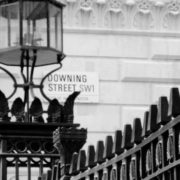
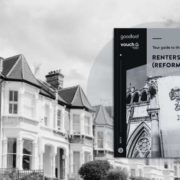


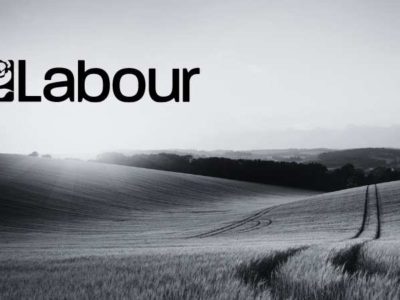

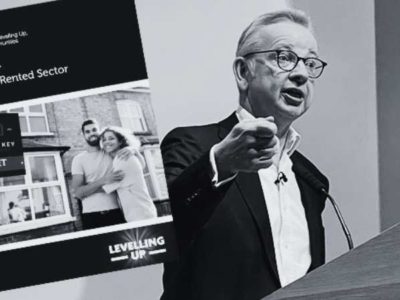



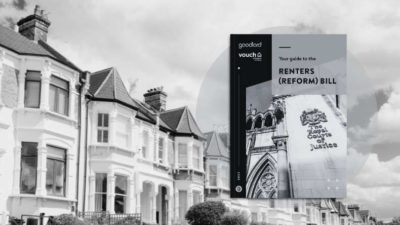






Comments